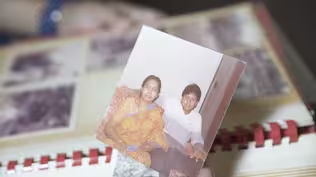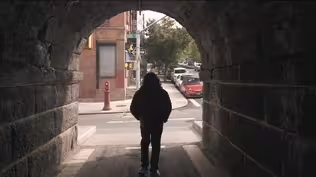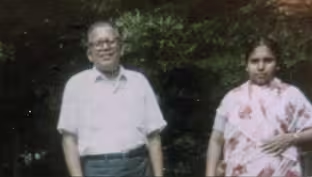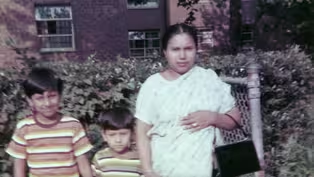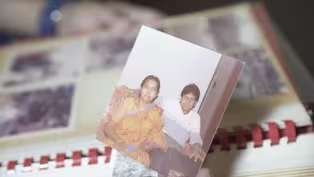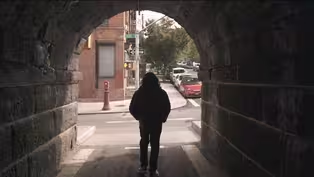
In Search of Bengali Harlem | An Identity in Hip Hop
Clip: Season 12 Episode 5 | 1m 34sVideo has Closed Captions
Alaudin Ullah talks about his love for hip hop and rejecting his roots when he was growing up.
Alaudin Ullah talks about the cultural revolution known as hip hop in Harlem. Ullah felt like an outsider when he was growing up so he connected to the music and the people. But this also meant a rejection of his Bangladeshi culture which his parents did not understand as they were proud of who they were and where they came from.
Problems playing video? | Closed Captioning Feedback
Problems playing video? | Closed Captioning Feedback
Funding for America ReFramed provided by the Corporation for Public Broadcasting, John D. and Catherine T. MacArthur Foundation, Wyncote Foundation and Reva and David Logan Foundation.

In Search of Bengali Harlem | An Identity in Hip Hop
Clip: Season 12 Episode 5 | 1m 34sVideo has Closed Captions
Alaudin Ullah talks about the cultural revolution known as hip hop in Harlem. Ullah felt like an outsider when he was growing up so he connected to the music and the people. But this also meant a rejection of his Bangladeshi culture which his parents did not understand as they were proud of who they were and where they came from.
Problems playing video? | Closed Captioning Feedback
How to Watch America ReFramed
America ReFramed is available to stream on pbs.org and the free PBS App, available on iPhone, Apple TV, Android TV, Android smartphones, Amazon Fire TV, Amazon Fire Tablet, Roku, Samsung Smart TV, and Vizio.
Providing Support for PBS.org
Learn Moreabout PBS online sponsorshipAlaudin Ullah: By the time I got fourth or fifth grade, in the lower income areas of New there was a cultural revolution going down.
I was sneaking to the Black park In front of my building, they used to have all the rapper Rap really was connecting with this feeling of isolation, being an outcast, being a freak.
I loved it.
I worshiped it.
I wanted to be part of that revo and then when I got into the Boy there were a lot of Puerto Rican graffiti artists.
I was watching them tag and they were quick.
They were like pfft, pfft, pfft, pfft and they were gone.
When I went to Metropolitan and the MoMA with these guys, they were like, "Yo, my man, I gotta tell you something though.
We're never gonna be in this pla That's why we gotta do the train Watching the trains come out of that train yard, it was a feeling of euphoria.
So it's like you're in some underground movement.
You know, my father said, "Putting your signature on wall.
What is this?
What is that crap?
I looked at my father like a Uncle Tom dishwasher.
Like, you don't know anything about the hood, the projects.
You just some old man and a cane and I remember one time my mom c with a stick, screaming and yell 'cause it was past eight o'clock I couldn't express to her why I loved hip hop so much.
She was never gonna get it.
This was the beginning of when I just totally abandoned and rebelled against anything that was Bangladeshi or Muslim.
In Search of Bengali Harlem | A Father's Past
Video has Closed Captions
Clip: S12 Ep5 | 55s | What do you know about the person you know as your father? Alaudin Ullah was surprised to find out. (55s)
In Search of Bengali Harlem | Growing Up Bengali American
Video has Closed Captions
Clip: S12 Ep5 | 56s | Alaudin Ullah opens up about growing up in Harlem as a Bengali American kid. (56s)
In Search of Bengali Harlem | Preview
Video has Closed Captions
Preview: S12 Ep5 | 30s | A Harlem playwright unearths the extraordinary pasts of his Bangladeshi immigrant parents. (30s)
In Search of Bengali Harlem | Trailer
Video has Closed Captions
Preview: S12 Ep5 | 1m 6s | A Harlem playwright unearths the extraordinary pasts of his Bangladeshi immigrant parents. (1m 6s)
Providing Support for PBS.org
Learn Moreabout PBS online sponsorshipSupport for PBS provided by:
Funding for America ReFramed provided by the Corporation for Public Broadcasting, John D. and Catherine T. MacArthur Foundation, Wyncote Foundation and Reva and David Logan Foundation.
